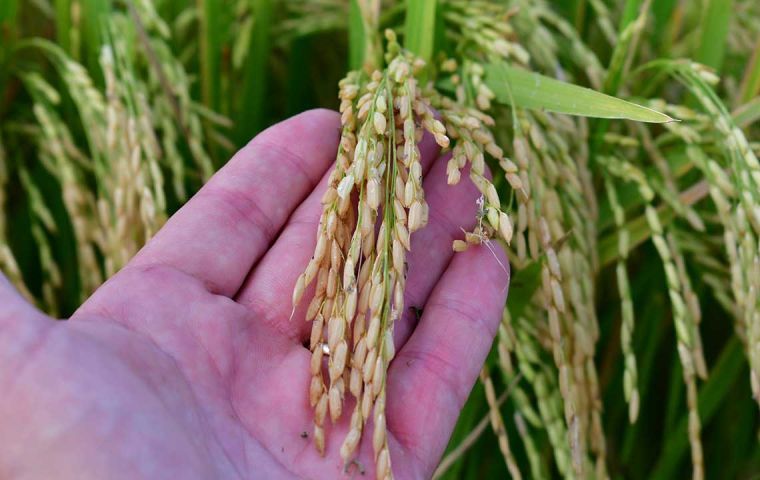Some 159,700 hectares were sown, with an average yield of 9,000 kilos per hectare totaling 1,4 million tons, making Uruguay the main exporter of quality rice in South America and the sixth worldwide.
For the first time in many years Uruguayan rice farmers are not complaining about the cereal’s price or asking for some form of government support. On the contrary the Association of Rice Farmers have admitted to have sold overseas all of this year-s crop an estimated 1,26 million tons out of a total harvest of 1,4 million tons. Uruguay usually consumes 10% of its rice production and the rest is exported.
But this has been an exceptional year, some 159,700 hectares were sown, with an average yield of 9,000 kilos per hectare totaling 1,4 million tons, making Uruguay the main exporter of quality rice in South America and the sixth worldwide.
However another significant factor has been decisive for Uruguay, when India decided to shut down its exports to protect the domestic market and make food security for the hundreds of millions of Indians a paramount policy goal. India surpluses supplies normally some 40% of the world rice market. Climate change problems in India and other Asian countries have limited access to rice for the over 150 countries that are supplied by Asia, which has rendered a boom year for Uruguay rice growers, and also for international rice prices.
Nevertheless Uruguay rice farmers accustomed to complain and demand similar conditions to those planters across the border in Brazil have in effect found a cause to bring up: insufficient rain to fill many of the dams and reservoirs that are used to irrigate the rice paddies. And this can be serious looking ahead to the next harvest since in Uruguay all rice is mechanically irrigated and it is estimated some 11,000 to 14,000 cubic meters per hectare, during one hundred days, are needed to ensure a good crop.
Meanwhile in neighboring Brazil exports of rice during the month of September reached 81,700 tons, which represents a 53,8% drop compared to the same month a year ago. According to the Brazilian Rice Industry Association, Abiarroz, sales decreased by 42,5% totaling US$ 33,3 million in the month.
Brazil a great consumer of rice during September imported 112,700 tons of rice, a 5,6% decline to a year ago, but the cost jumped 25,3% to US$ 46,6 million.
Record sales for Uruguay in an exceptional year for rice production — MercoPress

